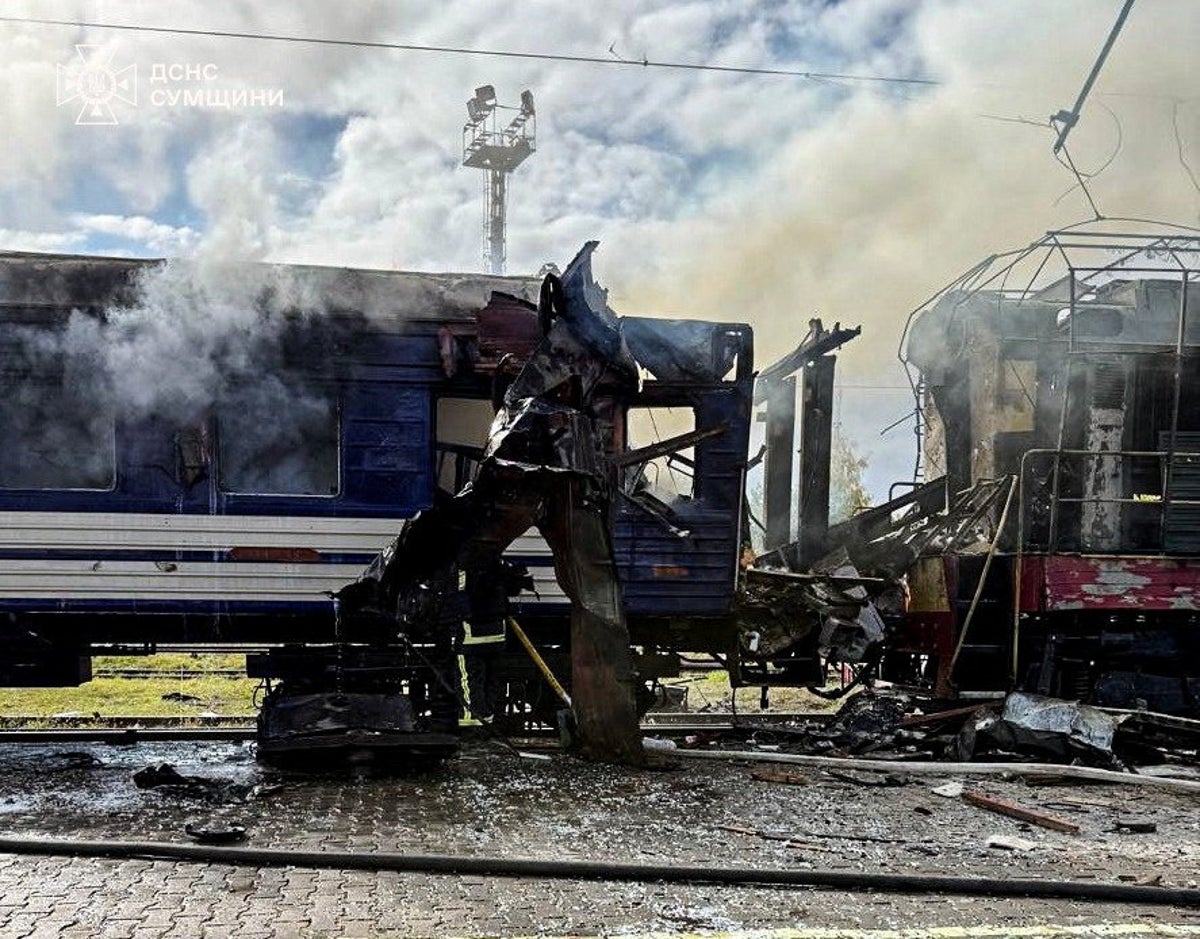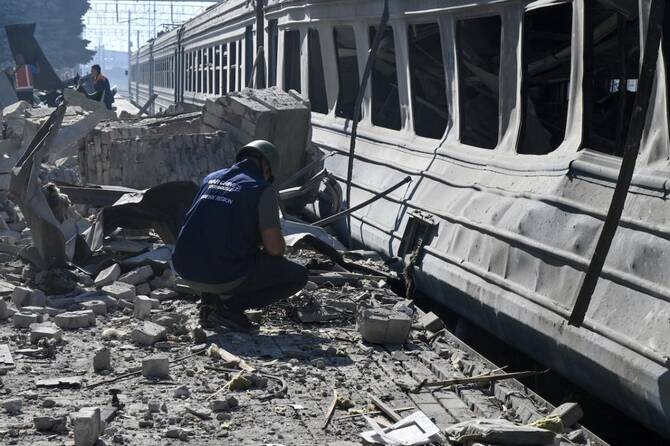At Least 30 Wounded in Shostka Attack
At least 30 people were injured when a Russian drone strike hit a railway station in the northeastern Ukrainian city of Shostka, according to President Volodymyr Zelensky. The incident occurred in Sumy region, roughly 50 kilometers from the Russian border. Ukrainian officials confirmed that both train staff and passengers were caught up in the attack.
Emergency response teams were dispatched immediately to assist victims, while reports suggest the number of injured may rise as assessments continue. Zelensky released a video showing a burning train carriage, highlighting the devastation on the ground.
Civilian Casualties Confirmed

Regional governor Oleh Hryhorov stated that among the injured were three children, aged 8, 11, and 14. Ukrainian Railways also confirmed that two passenger trains were struck. The second strike reportedly hit as evacuations were already underway, escalating the chaos and risk to civilians.
Railway officials condemned the assault, calling it a “vile attempt” to disrupt vital communication routes with frontline communities. Ukrainian Railways head Oleksandr Pertsovsky stressed that the attack had “no military purpose” and was aimed solely at spreading fear among the population.
Zelensky: “This Is Terrorism”
In a statement posted on X (formerly Twitter), President Zelensky accused Russia of deliberately targeting civilians. “The Russians could not have been unaware they were striking non-military targets. This is terrorism, and the world has no right to ignore it,” he wrote.
The president urged Western partners to turn strong declarations into concrete measures, stating: “Every day Russia takes lives. Only strength will make them stop. We’ve heard resolute statements from Europe and America—it’s time to turn words into action.”
Intensification of Russian Attacks
Ukraine has reported a significant escalation in Russian aerial assaults over recent weeks, with waves of drone and missile attacks targeting critical infrastructure. Just last Sunday, Kyiv endured a 12-hour onslaught involving hundreds of drones and nearly 50 missiles, leaving four dead and more than 70 wounded.
Ukrainian Deputy Defense Minister Ivan Havryliuk emphasized that strengthening air defense systems is not only vital for Ukraine’s survival but also for the security of wider Europe. He pointed to incidents of Russian drones entering European airspace as proof that the threat extends beyond Ukrainian borders.
Western Allies and Military Aid
Kyiv has long appealed to its Western allies for advanced air defense technology to counter Russia’s relentless barrages. The United States recently approved a program allowing European nations to purchase American-made weapons for Ukraine, and discussions are ongoing over Kyiv’s request for long-range missiles capable of striking deep inside Russia.
Although U.S. President Donald Trump has publicly expressed frustration with Russia’s refusal to engage in peace talks, he has refrained from imposing new sanctions. However, his administration has shifted stance by supporting mechanisms that enable Ukraine to strengthen its military capabilities. Trump has also suggested that Ukraine has a real chance of reclaiming territories occupied by Moscow.
Battlefield and Diplomatic Stalemate
Despite suffering heavy losses, Russian forces continue to make slow advances on the battlefield. Western governments and Kyiv accuse President Vladimir Putin of stalling peace negotiations while pressing on with a war of attrition.
Meanwhile, Ukrainian officials maintain that continued Western support is crucial to repel Russia’s advances and protect civilians from devastating airstrikes like the one in Shostka. The attack on the railway station, they argue, underscores Russia’s intent to terrorize communities rather than achieve direct military objectives.
Deduction
The Shostka railway strike serves as another stark reminder of the human toll of the ongoing conflict. With children among the wounded and vital infrastructure under attack, Ukrainian leaders are intensifying calls for the West to move beyond statements and deliver decisive support.
As drone and missile barrages escalate, the war’s impact stretches beyond Ukraine’s borders, raising pressing questions about Europe’s collective security and the urgency of international response.


